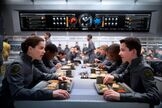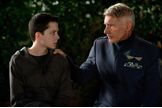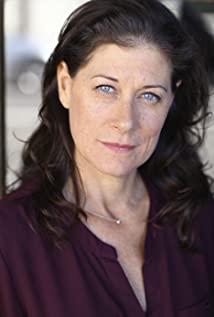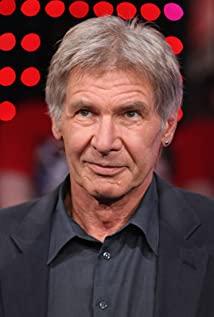Of course, the film does not directly answer this question, or even treat it as a question - the film does not construct a macro world view, the film's narrative strategy is to make the audience accept it. Other films, like The Matrix, label neo as the one, even literally (a alphabet game of neo and one), but this designation is accompanied by a worldview structure that accompanies neo and other The characters in the play repeatedly confirm and struggle with the identity of the savior. In Martin Scorsese's "The Last Temptation of Christ", Jesus' pain and struggle for the savior's identity breaks through the natural imposition and acceptance, and shows the value of "man becoming god".
Naturally, this film does not make any kind of effort, and Ender's "awakening" at the end of the killing has more of a role in launching a sequel. No, this film doesn't even need to make such an effort, because it makes the audience's acceptance of the plot setting based on a deep-rooted ideology: bloodline + genius supremacy + preemptive strike. The lineage theory explains why Ender, as the "lawless" third son, was born because of his innate genes, a rebalanced product of the impulsive and violent brother and the kind and weak sister, a "flying" Killing Machine". The supremacy of genius explains why social injustice can be accepted and fixed as the rules of society, just like the selection rules of talents in the battle school - this can be based on the same logic as the captain's oppression of the students. Preemption is not only the logic of the human war against the Zerg extermination in the film, but also the logic of today's real world wars such as Afghanistan and Iraq.
The analysis may be one-sided, but because of the above three points, I feel that there is something uncomfortable about this film. The space fleet that hangs above the earth may be the image that reflects the positional relationship between the East and the West today - this relationship is even more nakedly displayed in "Elysium".
Here, an elite political structure peddles injustice with "the world in peril."
"The world is in danger" in reality can be "global warming", "oil crisis", "terrorism", or "vegetarianism", "environmental protection", "freedom, equality and fraternity". And Ender's escaping gesture at the end of the film just heralds the formation of an irresistible cage - just as it was not mentioned in the film, but the follow-up development mentioned in the original novel: after the war between humans and the Zerg, the forces on the earth A civil war ensued and the world was divided. We have also identified in the history books the logical context of the development of the world after World War II.
View more about Ender's Game reviews










